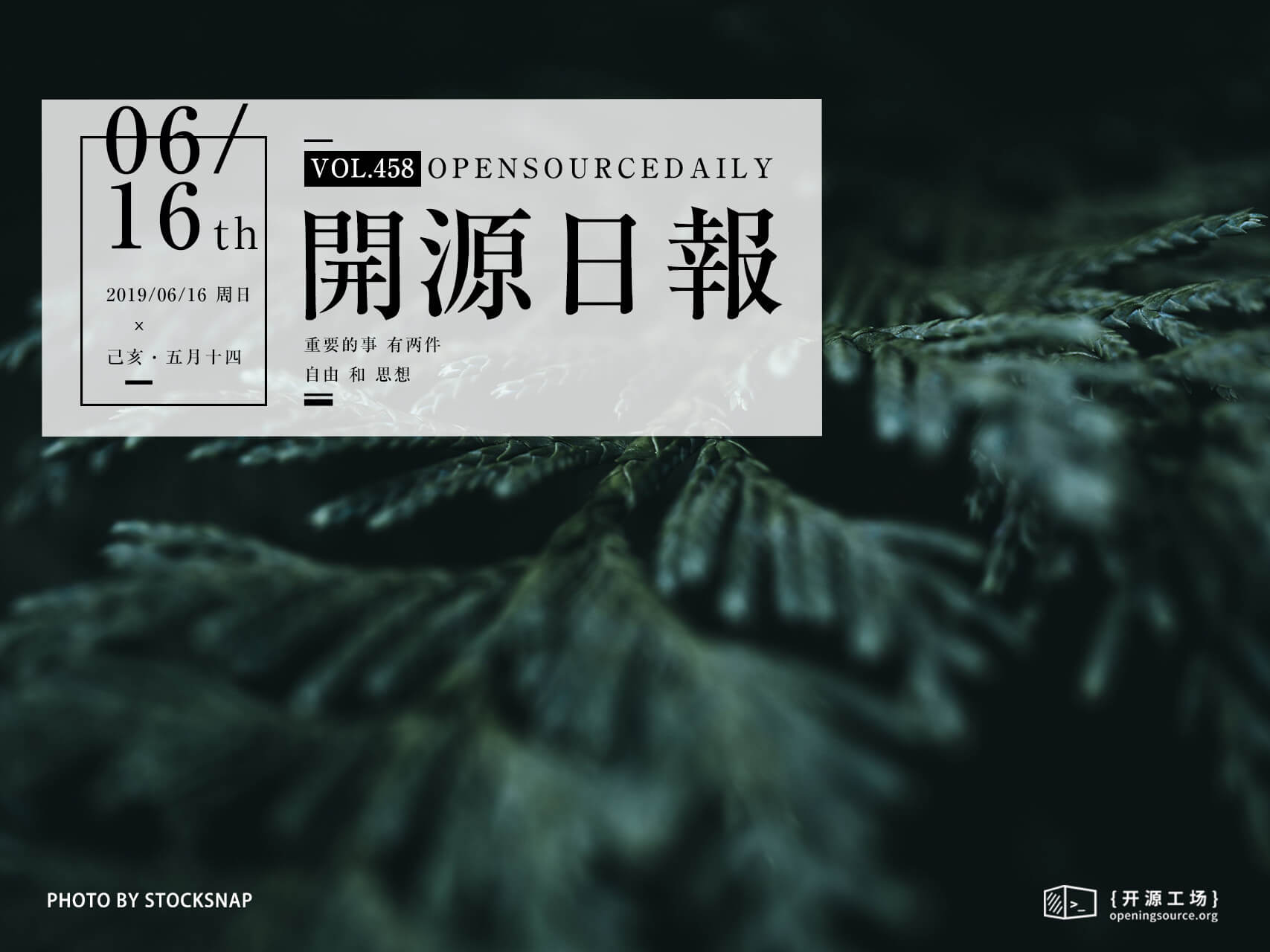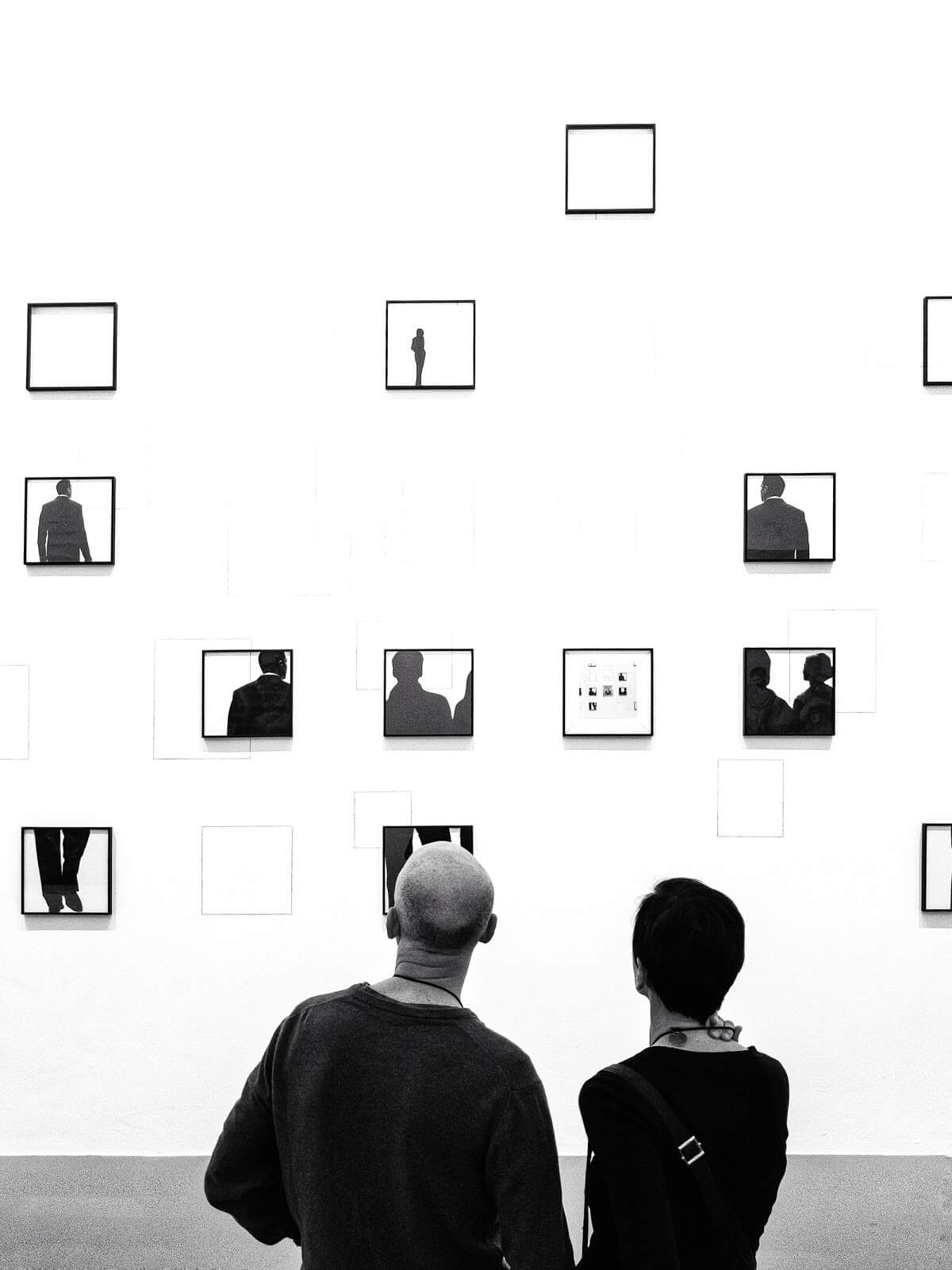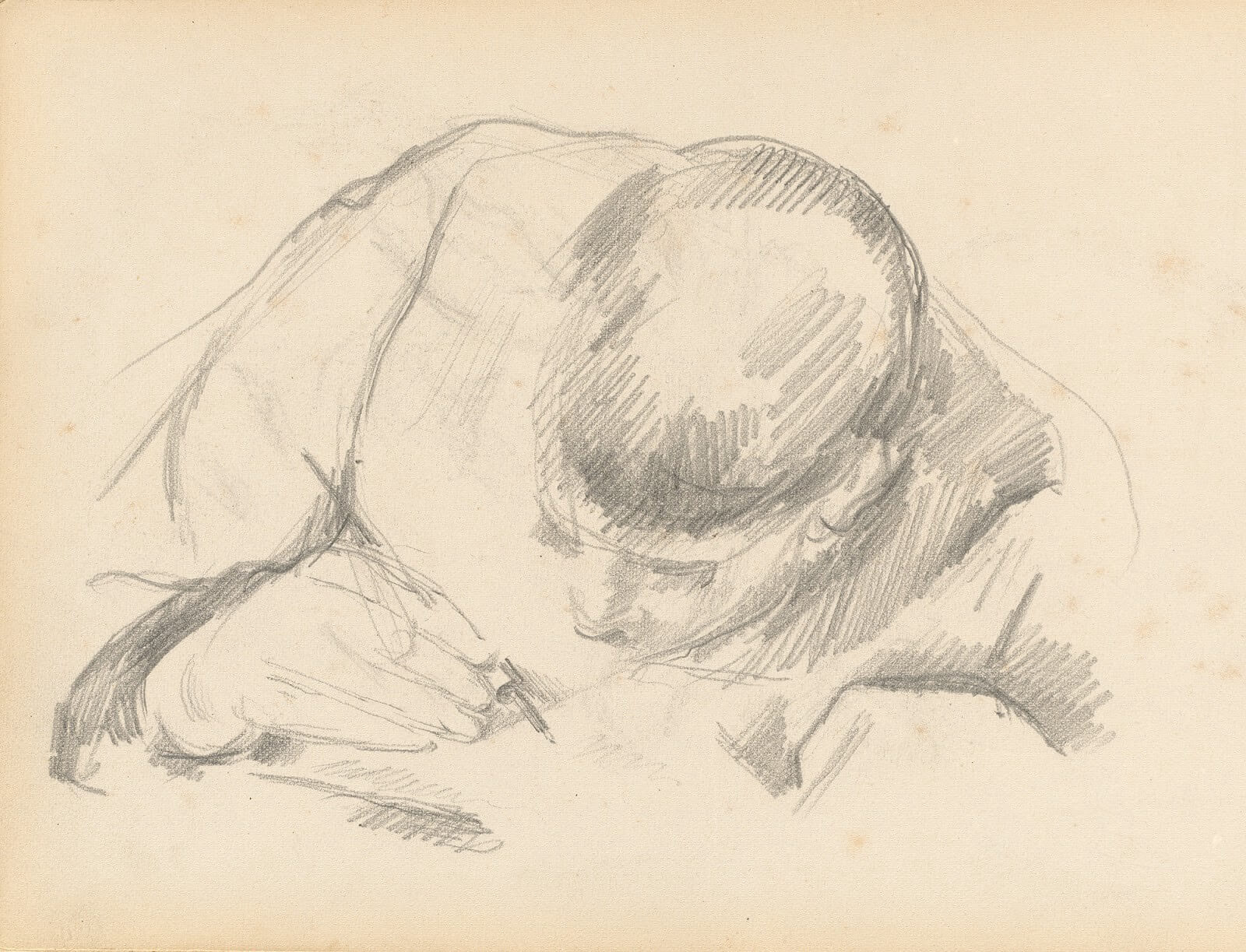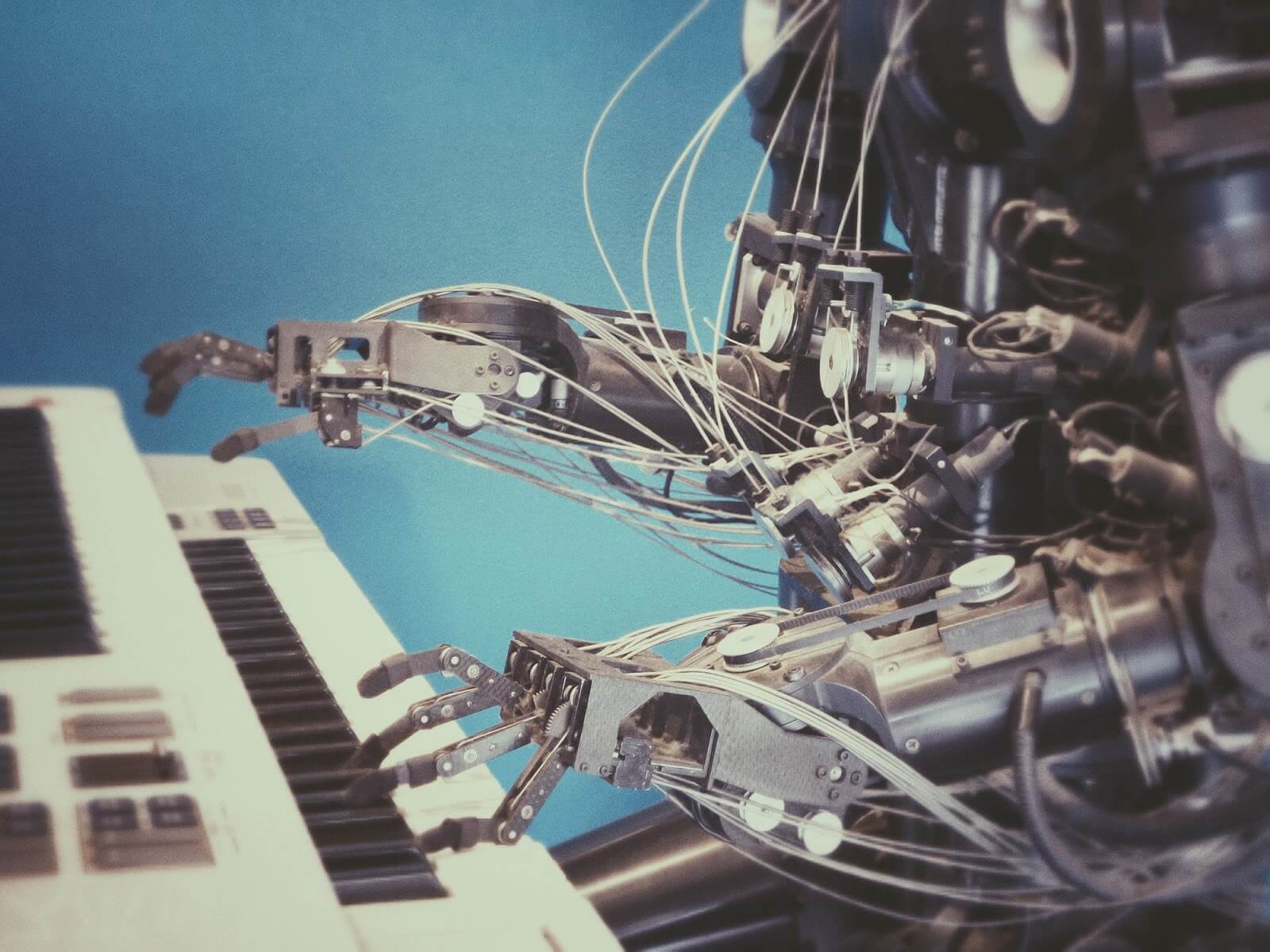今日推荐开源项目:《旗鼓相当的对手 Never-Blink》
今日推荐英文原文:《Could Machines Become Creative?》

今日推荐开源项目:《旗鼓相当的对手 Never-Blink》传送门:GitHub链接
推荐理由:很简单的游戏,它会随机帮你连上一个对手开始真刀真枪的对决,你们所做的每一步都关系到游戏的胜败,而你能做的就是计算好每一次行动——实际上只要不眨眼就好了。这个游戏的规则很简单,眨眼的算输。尽管它现在还没有放到公共服务器可以使用(没办法同时处理太多的客户端),但是眨眼者输这样简单的规则相当有意思,在不需要在现实中面对面这样的限制解除之后你能和相当多的玩家进行搏斗(眼皮上的)。
今日推荐英文原文:《Could Machines Become Creative?》作者:Jonathan Follett
原文链接:https://towardsdatascience.com/could-machines-become-creative-49f346dcd3a3
推荐理由:如果人工智能变得有创造性而没有相应的行为准则,那么它们可能会犯下和人类一样的错误,比如牺牲自然来发展,就像以前一样
Could Machines Become Creative?

Figure 01: Creative output from AI, like artwork, has seen its proof of concept in recent years. What can we expect from AI in the years ahead? [Photo: by Martino Pietropoli on Unsplash]
AI automation is coming, and it’s going to impact knowledge workers — writers, artists, designers, scientists, managers, and entrepreneurs. However, even when AI automation completely replaces the need for a human — such as in its conquest of strategy games like Chess and Poker — the world doesn’t end and the human element doesn’t disappear. Things are different. Largely better, in some ways worse, but life in fact goes on. Humans keep doing our thing. And the machines keep getting better, and better, and better. Artificial intelligence is both amazing and over-hyped. Humanity is safe for a few decades or centuries, at least.
So, what can we really expect from AI in the years ahead? How will AI impact the world of creativity and knowledge work? While AI has certainly been used to create artwork, these pieces have been more curiosity or proof-of-concept. In 2016, J. Walter Thompson’s Next Rembrandt project taught an AI to paint like the master. And in 2018, Christie’s New York sold an AI-produced work of art for the first time, the Portrait of Edmond Belamy. The print itself was created by an algorithm developed by humans from the French art collective Obvious. These are recent and remarkable achievements, but they are isolated exercises. There is no clear path to AI collaborative art becoming mainstream.
To get a clearer picture of when AI might begin changing creative work of all kinds we spoke with Katja Grace of AI Impacts, a research organization focused on decision-relevant questions about the future of artificial intelligence. It’s forecasting, broadly defined, AI’s advances and the impacts on society. Grace was the lead author on a 2017 paper entitled “When Will AI Exceed Human Performance? Evidence from AI Experts.” Taking Incremental Steps or Sprinting Forward?
Technology often advances slowly, then quickly when a key new advance is realized. But the slow is often not as slow as it seems, and the quick isn’t as quick as we think, either. So regardless of how artificial intelligence evolves we should expect the manifestation of it to be less extreme than we imagine.
“You could imagine AI progress happening in an incremental way where, every year, there’s slightly better AI than previously. Or, you could imagine that, at some point, we have some amazing insight that [results in] having very good AI quite suddenly. Often, people expect the latter one to happen and sort of plan accordingly… We are interested in how likely it is to go either of those ways,” says Grace.
Historically, there are a number of reasons we might think that AI will advance incrementally. However, there are various arguments for expecting there to be sudden and surprising progress. What might enable a surge in AI automation to be possible? “The digitization of much of our lives recently means there’s a lot more data …” says Grace. “And deep learning lets you use lots of hardware and data to get good results. The availability of hardware has allowed the science to progress rapidly.”
Automating Knowledge Work
The idea of automation as a core to creative work remains either unknown or uncomfortable to most. In Grace’s work as an AI researcher, though, the model of automation as a ubiquitous force is clear: “I think part of the reason to suspect that deep learning will automate knowledge work is we think that probably something will automate knowledge work eventually,” says Grace. “We know that humans can do knowledge work. So probably it’s possible to get machines to do it as well — unless you think that humans sort of have some magic spark of consciousness that is needed for it that we’ll never be able to automate.”“I think many people suspect that’s not the case, so the question is what technology will let us do this? A reason to suspect that deep learning might be it is, we’ve recently seen a lot of progress in automating some things that are part of normal human functioning, that we hadn’t previously been able to do, that are key to most work, for instance, recognizing and dealing with images and speech and writing.”
“We’ve seen deep learning do some things that seem fairly intellectual, for instance, playing various games quite well. You might think that the kind of technology that lets us play Go well wouldn’t be that far off what we need for being able to [do] some jobs well, that are relatively straightforward intellectual jobs. I suppose some people think that this sort of technology might take us all the way to having artificial general intelligence that can do basically everything humans can do, but that’s more controversial.”
Grace’s 2017 paper, “When Will AI Exceed Human Performance? Evidence from AI Experts”, was based on a survey polling researchers who published at the 2015 Conference on Neural Information Processing Systems and the 2015 International Conference on Machine Learning. A subset of respondents were asked a question that emphasized consequences for employment. The question defined full automation of labor as when all occupations are fully automatable. That is when, for any occupation, machines could be built to carry out the task better and more cheaply than human workers. The aggregate forecast put the 50% chance 122 years away, or by 2138. The timeline of median estimates for AI achieving human performance in various kinds of knowledge work, included:
- in 5–10 years, writing a high school essay
- in 10–15 years, generating a Top 40 pop song, and
- in 25 years or more, writing a New York Times bestseller
Writing
How soon might AI be able to write at a human level? “You might imagine tools for helping to write better that are not really entirely automated in the process. Or you could imagine something that just does journalism for you,” says Grace. “I expect there to be better tools for it relatively soon.” However, “In order to [write] well enough that the writer has a coherent picture of the world and a message or goal that they’re trying to convey and an idea of the audience they’re trying to convey it to, [this] seems close to AGI complete. But, I expect [it] may be earlier for AI to be able to produce written words that are interesting in some way or amusing or people find worth reading.”The limits Grace identifies around machines independently writing relate to their inability to bring a broad understanding of the world to bear on the things they write. We’re going to find context is the Achilles heel for AI — and should continue to be beyond the upcoming decade — a crucial chalk line that helps guide what AI will and will not be able to do. Grace also equates the ability to have context with being AGI complete, meaning that there is an artificial general intelligence that eclipses human capacity. This goes down the path of science fiction and the machines-will-take-over-the-world narratives. While this throughline is, indeed, visible it is a mistake to yoke context and AGI too closely. Having broad knowledge is one thing; have the ability to act broadly is another thing entirely.

Figure 02: How soon might AI write at a human level?
[Illustration: “The Artist’s Son Writing”, 1887, Paul Cezanne, National Gallery of Art, Open Access]
Music
What about pop music? In the survey paper, “One of the things that was quite early that I thought was interesting was, we asked when AI would be able to basically write a new Taylor Swift song as well as Taylor Swift can, so that a dedicated Taylor Swift fan would not be able to tell the difference between this new song and one that she wrote and performed. [Researchers surveyed] put that about 10 years out. You might think, in order to write, to really properly be a songwriter, you need to sort of understand the words that you’re saying. It’s possible these machine learning researchers just didn’t have a great view of Taylor Swift that they thought that this would be automatable soon.”All jokes about the substance of Taylor Swift songs aside, music specifically and art in general are right in the crosshairs of today’s AI automation. For example, Aiva (Artificial Intelligence Virtual Artist) an AI composer, has created music used in the soundtracks for films, advertising, and games, and was the first virtual artist to be recognized by an author’s rights society.

Figure 03: Music is one creative area with numerous AI advances in automation. [Photo: by Franck V. on Unsplash]
The Consequences of a Creative AI
What are some risks or unintended consequences with advanced development of a creative AI? “It might be straightforward to make a technology that can … make very high-quality decisions, and play games really well, play games in the real world very well, [and for example] make a lot of money. But if that’s quite easy and we haven’t figured out exactly how to make them do exactly what we want, we might end up with a giant mess,” says Grace.“If you can look at how to set up a company that makes money by producing stuff, but you haven’t figured out to make it care about all of human values that you care about — like whether the rivers are polluted, you will tend to end up with polluted rivers. Similarly, if you make machines that are very good at optimizing for something and don’t really know what you care about, then, without any malice, they will end up destroying the things that you cared about.”
Those sounds like the same sort of risks and consequences that the industrial revolution produced. Of course, even though actual change is happening far slower than it should or we may like there is an evolution of mindset and intention. Eventually, policy will catch up to that and we will see nations, corporations, and ultimately individuals writ large avoiding the sort of destructive, polluting behaviors brought to us by industrialization. Doing things in a more holistically correct way will be baked into the basic way that things are done.
So, how smart could machines become and how would that compare to human intelligence? “I guess the question is: Are humans as intelligent as a thing can be? Reasons to suspect not are, it seems like the human brain is fairly constrained by the need for it to fit in a human head and for mothers to be able to give birth to their children — that sort of thing biologically — and how much energy does it use? … It looks like there are biological constraints in our brains that mean they couldn’t be a lot more impressive even if there were, in theory, greater heights of intelligence to have,” says Grace. “Even having machines that were somewhat smarter than the smartest humans we’ve ever had would make a big difference to the world.”
下载开源日报APP:https://openingsource.org/2579/
加入我们:https://openingsource.org/about/join/
关注我们:https://openingsource.org/about/love/
